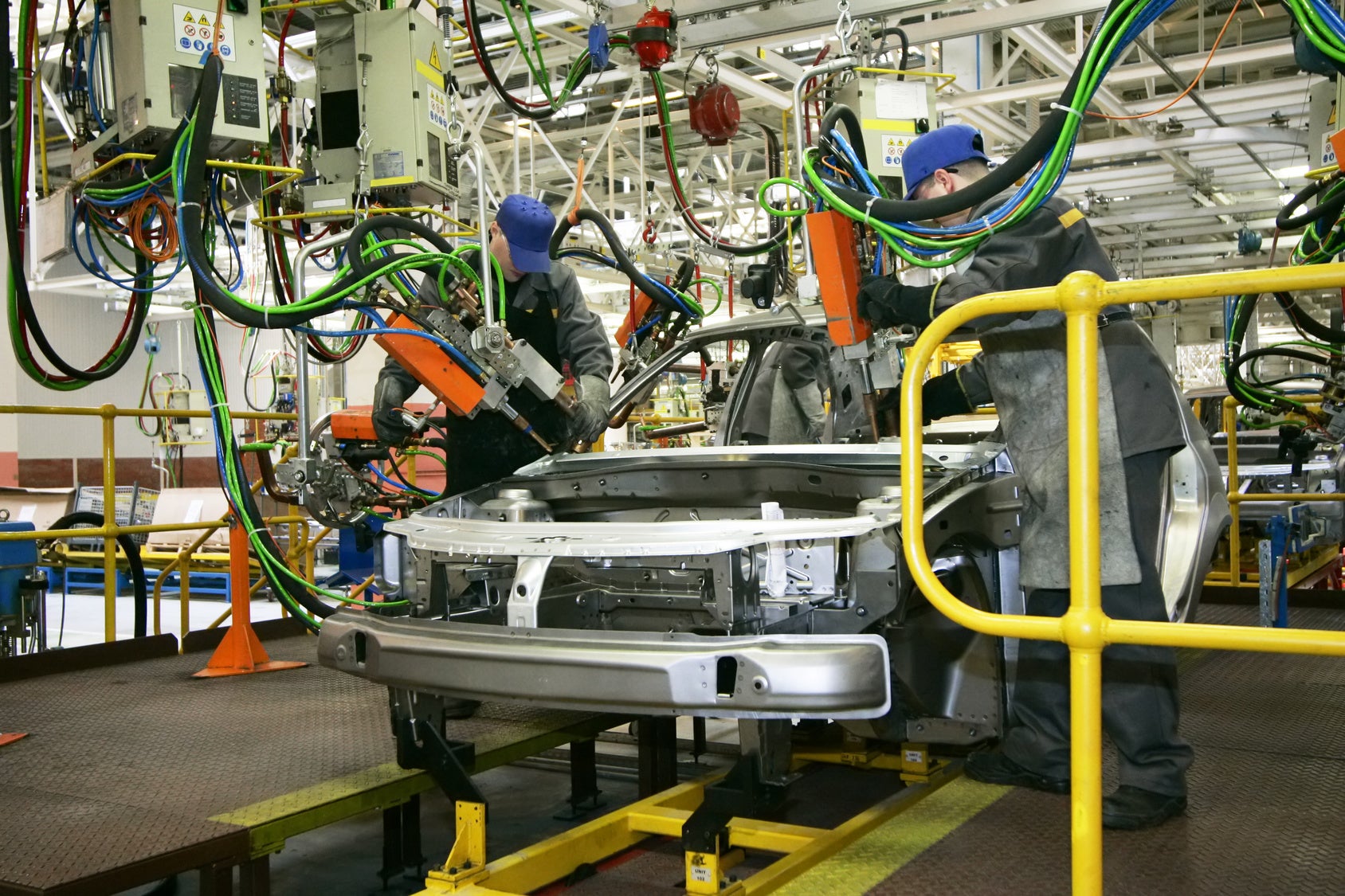The road ahead for automotive suppliers is anything but certain, and electric vehicles (EVs) are a key reason. With nearly all major original equipment manufacturers (OEMs) looking to expand their output of EVs, demand for new parts has presented new challenges for suppliers and risks for manufacturers.
Since late 2020, nearly every OEM has faced a severe shortage of semiconductors, hindering output capability for both EVs and traditional models that now come front-loaded with the digital accessories to meet demand. The reduced output has resulted in billions of dollars worth of lost sales.
In late February, President Joe Biden signed an executive order to address the crippling shortage. The president ordered a 100-day review that will ultimately result in policy recommendations to strengthen semiconductor supply chains.
New Challenges for Automotive Companies
New supply chain disruptions aren’t going to go away. The digitization, not to mention electrification, of automobiles has substantially changed designs and the manufacturing process. Requiring relatively fewer traditional automotive parts, modern cars are dependent on semiconductors, microchips, sensors, batteries, and numerous other electronic components that provide technological advantages.
As electronics manufacturers can attest, meeting regulatory requirements for thousands of tiny parts is a monumental data burden. Supply may be impacted by production hiccups like the industry is currently experiencing or trade wars, natural disasters, and other events that are impossible to predict.
Additionally, the raw materials required to manufacture the parts and components carry reputational risks. Suppliers to automotive OEMs, particularly those producing batteries, will be required to meet strict standards in order to win contracts. Increasingly, this means the ability to reliably trace the source of origin for minerals such as cobalt as well as tin, tungsten, tantalum, and gold (3TGs).
Cobalt is an integral part of the lithium-ion battery, the most popular battery used in modern EVs. With over 60 percent of the mineral being sourced from the Democratic Republic of the Congo (DRC), cobalt mines and miners may be exploited by armed groups operating in the region.
Demand Increasing
Deloitte forecasts that OEM production of EVs will reach 35 million units by 2030, an exponential increase from the 2 million units produced in 2018. As the name suggests, EVs use a battery to power the vehicle as opposed to a traditional internal combustion engine. They typically have fewer parts, but require more electronic components and a high-capacity battery.
This shift toward electronic parts has left an indelible mark on the industry. Deloitte predicts that suppliers of electronic and electric car components will see the largest increase in market size by 2025, and predicts a decrease in market size for those supplying exhaust or fuel systems.
Batteries present other challenges to automotive suppliers. They are the heaviest component in an EV and are difficult to transport, meaning battery suppliers geographically closer to a vehicle’s final point of manufacture will have an advantage in competitive contracts. Most batteries are currently produced in Asia, which means other regions may need to invest in battery manufacturing to maintain current automotive production.
The end of a battery’s life is also a consideration for regulators. End of life regulations mandate that the majority of a vehicle is able to be reused, recycled or recoverable. Batteries may have success in their “second life,” as the materials used to manufacture them maintain high value when recycled. Post-life costs may be absorbed by the OEMs or passed down to the battery suppliers.
The capabilities of EVs are rapidly evolving as is the technology used in their production. This will result in changing regulations and customer-specific requests that companies must meet in order to remain competitive.Reliable data management processes will be essential to proactive responses in the face of change. The Assent Compliance Platform automates supply chain data collection and centralizes it for efficient risk assessment and analysis. Contact us to learn more.









